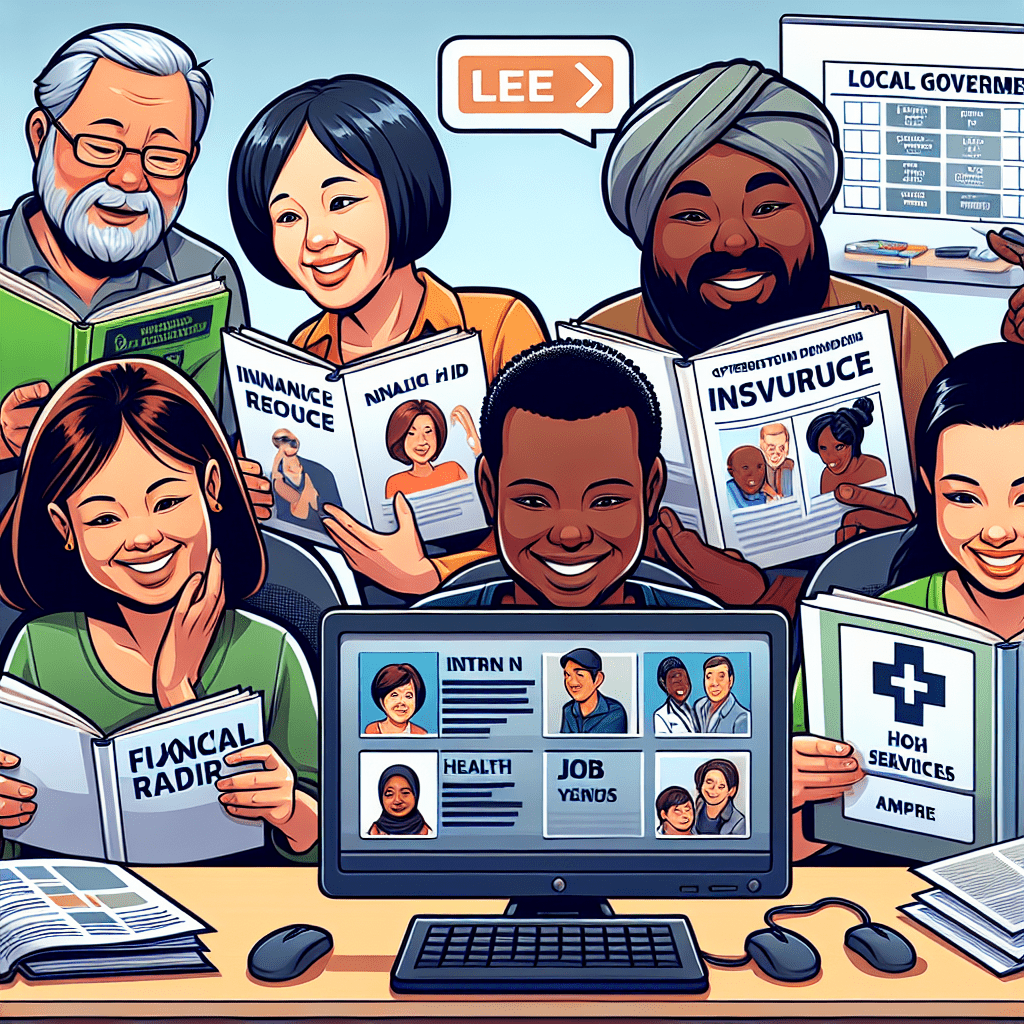Are You Leaving Money on the Table? A Guide to Government Resources You Can Access
Navigating the world of government resources can feel overwhelming, yet countless individuals and families may be missing opportunities to access benefits and financial support. The reality is that government programs exist to help you thrive, whether you’re seeking financial relief, educational assistance, or health support. This guide steps you through essential features of these resources and how you can take advantage of them.
Features of Government Resources
Government programs come with a variety of valuable features that cater to different needs. Here are some key characteristics:
- Financial Assistance: Many programs provide direct financial help for those in need.
- Educational Resources: Grants and scholarships can substantially ease the burden of educational expenses.
- Health Services: Subsidized healthcare options make medical services more accessible.
- Community Programs: Many local initiatives offer support, from food banks to mentoring opportunities.
- Employment Resources: Job training and placement services help individuals improve their career prospects.
- Housing Support: There are resources available to help with rent or mortgage assistance.
- Childcare Assistance: Subsidized childcare options provide relief for working families.
- Disability Support: Programs specifically designed to assist individuals with disabilities ensure they don’t face financial hardships.
- Tax Credits: Refundable tax credits can boost your yearly return significantly.
- Legal Resources: Access to legal aid for those who can’t afford representation when facing challenges.
By utilizing these features, you position yourself to harness the full benefits your government offers.
Overview of Available Programs
Numerous government resources exist across federal, state, and local levels. These programs address a range of needs and can help stabilize your financial situation. Some notable ones include:
- Supplemental Nutrition Assistance Program (SNAP): Provides food-purchasing assistance for low- and no-income individuals.
- Temporary Assistance for Needy Families (TANF): Supports families in need through cash assistance and job training programs.
- Medicaid: Offers health coverage for low-income individuals and families.
- Section 8 Housing Choice Voucher Program: Assists low-income families in affording safe housing.
- Pell Grants: Financial aid for low-income undergraduate students.
- Low Income Home Energy Assistance Program (LIHEAP): Helps low-income households pay for energy bills.
These programs serve a shared purpose: to make life a little easier during tough times.
Why Accessing These Resources Matters
Taking advantage of available resources can significantly improve your financial health and quality of life.
- Reduces Financial Burdens: Government assistance can relieve stress from mounting expenses.
- Enhances Education: Grants and scholarships can unlock higher earning potential through education.
- Increases Stability: Access to health, housing, and childcare resources can create a sense of security for families.
- Supports Long-Term Growth: Utilizing these resources can inspire individuals to break the cycle of poverty and aim for upward mobility.
Accessing these resources is not just about immediate relief; it’s a strategic move toward a brighter future.
Who Uses Government Resources?
Government resources are available to a wide array of individuals. Some primary users include:
- Low-Income Families: Seeking financial assistance and food support.
- Students: Looking for ways to fund their education.
- Individuals with Disabilities: In need of medical care or employment support.
- Elderly Population: Often requiring healthcare and legal support.
- Unemployed Individuals: Searching for job training and placement resources.
Understanding who can benefit helps you realize that you’re not alone in seeking assistance.
How to Access Government Resources
Accessing government resources involves straightforward steps:
- Research Programs: Look into local and federal programs that align with your needs.
- Gather Documentation: Prepare any necessary information such as identification, income statements, and household details.
- Fill Out Applications: Complete applications accurately and submit them on time.
- Follow Up: After submission, check on your application status and respond to any requests for more information.
- Utilize Local Offices: Many programs have local offices that can provide on-the-ground assistance.
With perseverance, accessing these programs can provide the support you need.
Pros and Cons of Government Resources
Every program has its pros and cons. Here’s a breakdown:
Pros
- Financial Support: Immediate assistance helps stabilize your situation.
- Variety of Options: Numerous programs cater to diverse needs and preferences.
- Accessibility: Many resources are designed to be user-friendly.
Cons
- Complex Applications: Some applications can be complicated and time-consuming.
- Eligibility Requirements: Certain criteria may limit access for some individuals.
- Limited Funding: Not all programs have the necessary funding to meet demand.
Weighing these aspects ensures you approach government resources with a clear perspective.
FAQs
-
What are some examples of government programs?
Programs include SNAP, TANF, Medicaid, and Pell Grants.
-
Who can qualify for these resources?
Eligibility typically includes low-income families, individuals with disabilities, students, and the elderly.
-
How do I start accessing these resources?
Research available programs, gather documentation, and complete the necessary applications.
-
Are there any income limits for accessing government assistance?
Yes, most programs have specific income thresholds that determine eligibility.
- What if my application gets denied?
You can usually appeal the decision or inquire about adjusting your application.
Accessing government resources can be incredibly beneficial and empowering. Don’t hesitate to explore the assistance that may be available to you and your family.
Disclaimer: As an Amazon Associate, I earn from qualifying purchases. I may earn a commission from qualifying purchases as an affiliate. Please note that I only recommend products I believe will provide value to my readers.

